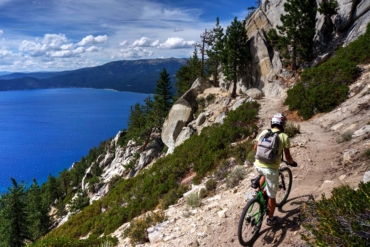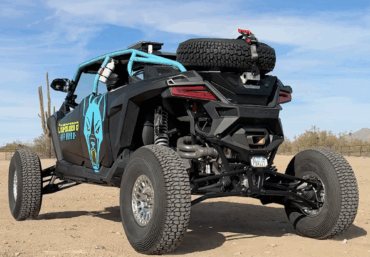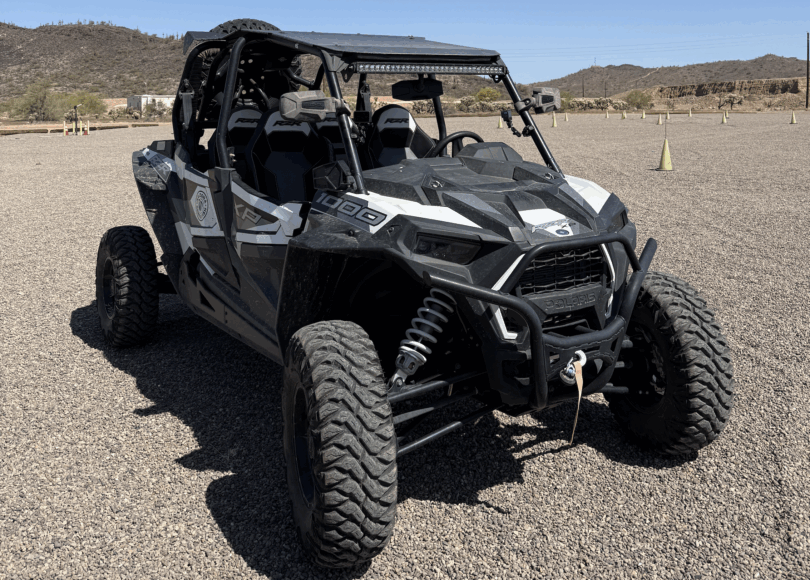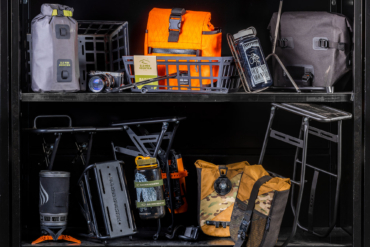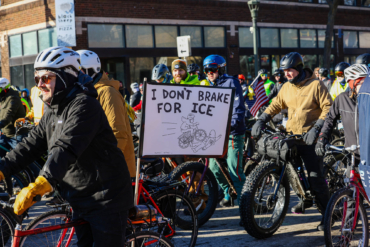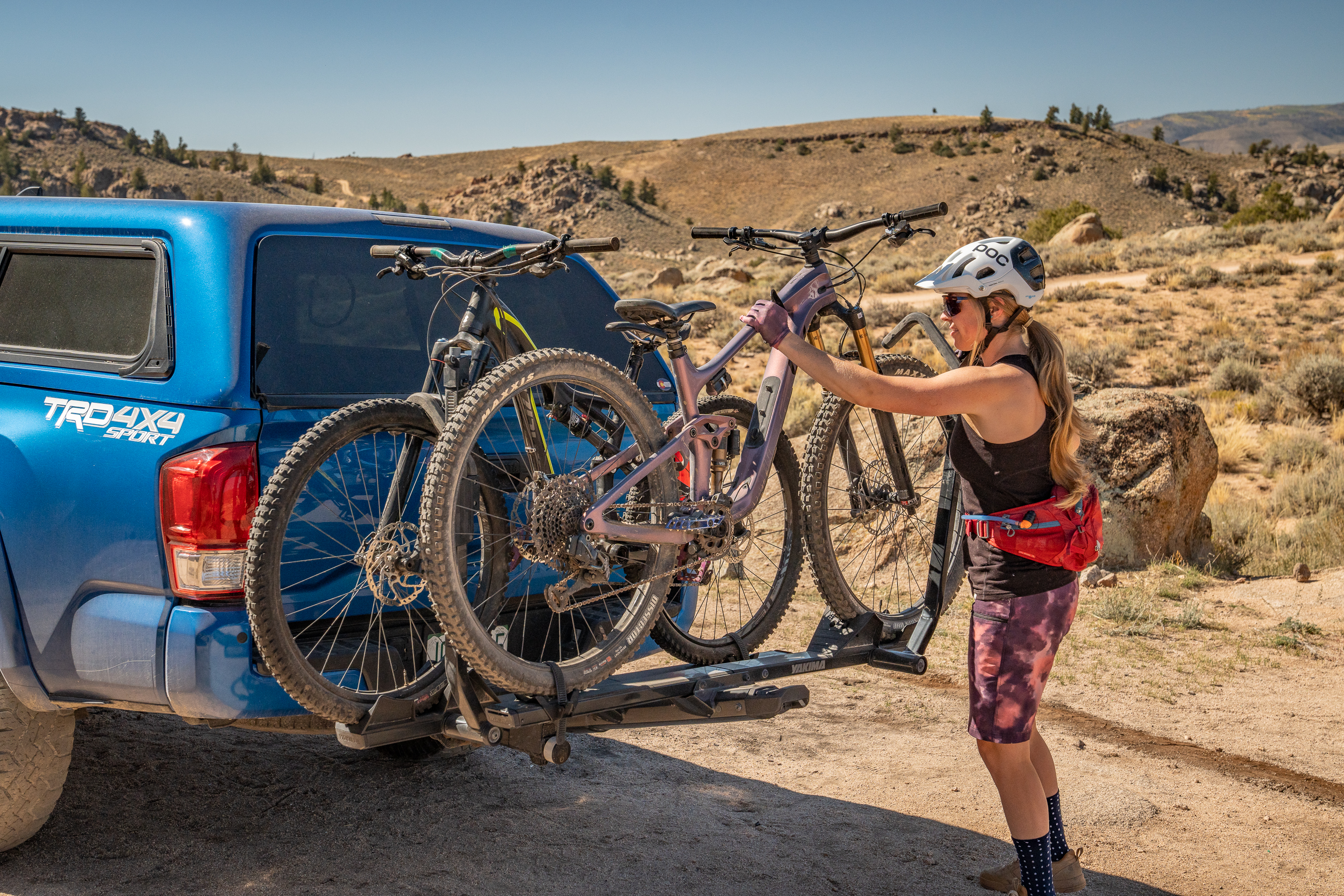With a singular goal of going fast on cross-country terrain, I set out this past year to build my version of the “ultimate race bike.” The hardtail 29er was made for hair-trigger handling and top speed on singletrack trails. A custom frame and top-end parts came together to make the 21-pound beauty, which would cost more than $8,000 at retail price. (Fortunately, through industry discounts, favors, and a work trade, I was able to keep the cost much lower!) I now own my dream bike, a race-ready machine that’s the envy of nearly every rider I pass on the trail. Here’s a breakdown of the parts and the custom frame. —T.C. Worley
Custom Steel Frame — The heart of any custom-built bike is its frame. I went with tried-and-true steel and a custom shop, Peacock Groove, which is based in my home town of Minneapolis. The shop, founded by Erik Noren, is known for bringing on the flash and “deep custom” concepts, and with my bike it was no different. Noren handcrafted my frame and personalized it over a period of many months to both my riding style and my anatomy.
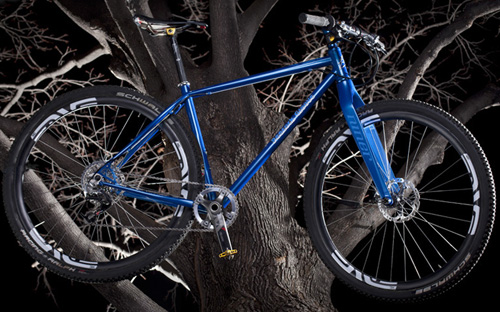
Bling blends with performance features on the build, including a dished-out seat tube that mates with the rear wheel and offers a shorter wheelbase for more precise handling. A stamped “Peacock Groove Forever” stainless-steel chainguard sits 0.25-inch above the chainstay to protect the frame and paint. Custom peacock-shape dropouts and a head badge are pure quality touches. Top it all off with a shimmering, metal-flake, pin-stripped paintjob and it’s hard not to swoon. $2,450.
Carbon Fork — Freaky light at 630 grams, the RDO Carbon Fork from Niner is strong and stiff. I ordered the full-carbon fork for both weight saving and its damping characteristics and RockShox’s Maxle Lite 15mm thru-axle for its strength and precise steering. $549
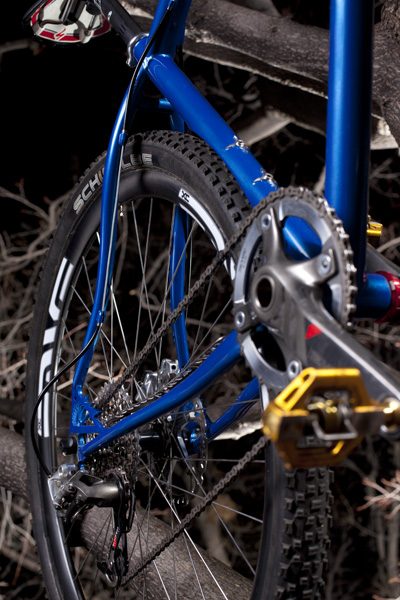
Low-Profile Shifters — A few years back SRAM began getting requests from sponsored pros for a race version of its lever-less SRAM XX GripShift shifters. The brand responded with the lightest, simplest shifters on the market. A mere 287 grams of hardware helped keep my build light, and performance is right where I’d expect it. The SRAM XX GripShift delivers crisp, flawless shifts, and unlike levered shifters, I can dump the whole 10 speed cassette in one big twist if needed. $295
Ultra-Stiff Cranks — Stiff cranks give efficient power transfer. I picked the SRAM XX cranks, which feature carbon arms with an aluminum spider, a wide bolt circle diameter, and 6mm-thick chainrings for power. (Since terrain is fairly flat here in the Midwest, I removed the smaller front chainring to make this bike a 1×10.) $500
Carbon Tubular Wheels — ENVE Composites Inc. provided the wheels. The company’s ultra-stiff ENVE Tubular XC Rims cost a cool $2,400 a pair when laced to Shimano XTR hubs. But for the ching you get hoops that weigh a scant 280 grams (without hubs and spokes) and will spin to life faster than almost anything available. I went with tubular “sew-up” wheels for full-on racing mode. Mated to Schwalbe 1.9-inch tires, the setup is great for speed but not for showboating — I’ve had repeated issues with rolling the tire off of the rim after tail-whipping antics. Dedicated race-day-only wheels.
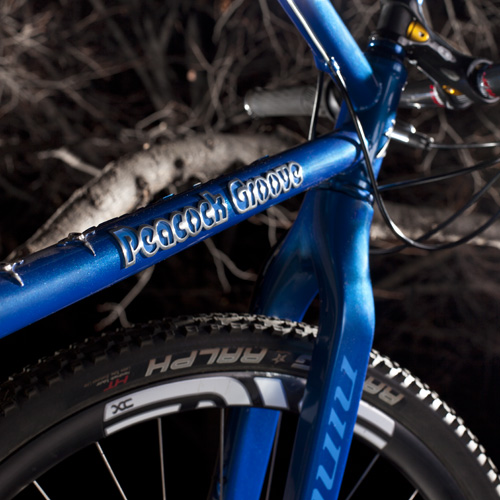
Hubs — There is really no way for me to actually test the “best” factor of one hubset versus another. But I can say I’ve had great experiences with Shimano XTR Hubs in the past and was more than happy to build my wheels on them again. At 452 grams for the pair, they’re not feathery but are super smooth and durable, too. $478 for the set.
Trail-Ready Brakes — Some would say it’s tacky to mix component manufacturers in the cockpit. But there’s nothing tacky about having the best stoppers around. I was willing to sacrifice a few grams of weight for Shimano’s Trail brake (as opposed to its Race version), and I couldn’t be happier. The Trail Brakes give greater stopping power and are hands-down the best I’ve ever used. Strong, light and fade-free, they are a perfect choice for my build. $540 for set
Lightweight Pedals — For years now, I’ve run CrankBrothers Candy pedals exclusively on my mountain bike. From my first low-end pair to these top-of-the-line Candy 11s, I’ve had nearly flawless performance. I appreciate the float, the quick, easy exit, and the mud-shedding qualities of this design. Combine these qualities in a 226-gram, titanium-axle combo, and the Candy 11s are hard to top. $350
Sleek Carbon Stem and Seatpost — For aesthetic design, it’s hard to beat Crank Brothers. I’ve wanted the 125-gram Cobalt 11 Stem ever since I first saw it. Its unique tension system and closed carbon loops give me form and function in a single beautiful package. Matching alloy accents on the stem, the seatpost, and the pedals really tie this build together. $300 (stem); $220 (seatpost)

Race Saddle — I found the 242-gram Specialized Phenom Expert saddle to be the perfect mix of firm, flex and weight for this build. Seats are a tricky thing to choose and for some will require years of searching to find the right one. Specialized offers its saddles in multiple widths to help you find your match. My tail end prefers the 143mm size. $130
Headset — A good headset should last the life of the bike. I picked the Cane Creek 110 Headset ($156) for its superior seal/bearing interface, designed to keep dirt and water out for a long, long time. That it matches the paint perfectly was a happy accident. Come what may, this headset should steer me into my silver years and beyond.
—T.C. Worley is a contributing editor. He filmed “Deep Custom,” a short on custom bike-builder Erik Noren, in 2011.
